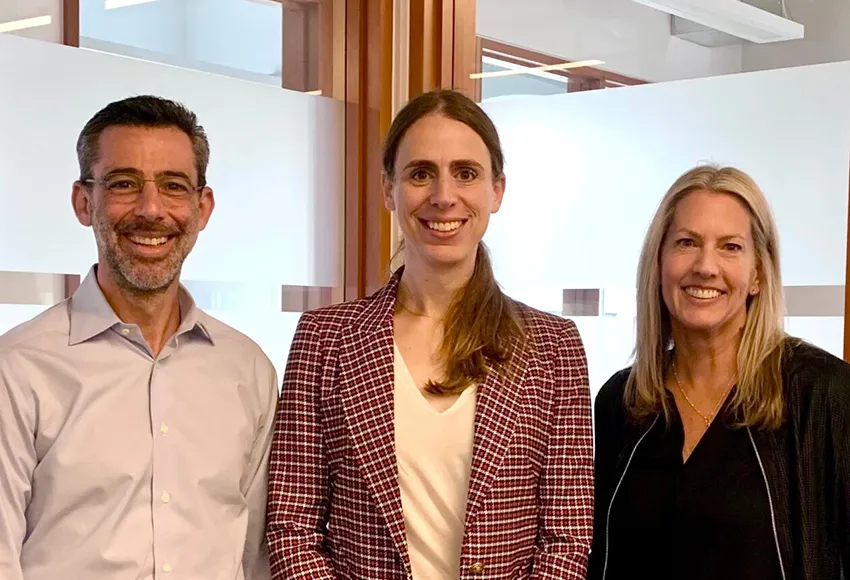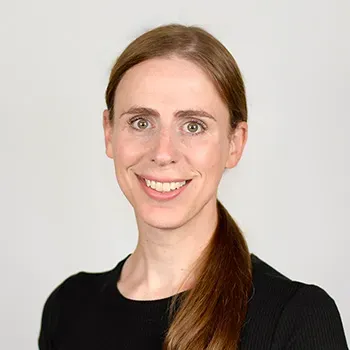Mental health among teens and young adults is getting worse.
Data from the Centers for Disease Control and Prevention show that 57% of teen girls and 29% of teen boys in the United States felt persistently sad or hopeless in 2021. This is a 60% increase from statistics taken in 2011.
Washington state is no exception to this epidemic related to a decline in mental health. A 2021 survey from the Data Resource Center for Child and Adolescent Health states that 12.7% of children aged 3 through 17 in Washington have received mental health care in the past year.
Mental health care is already inaccessible for many, but on top of that, patients often have a hard time finding a therapist who can relate to their struggle as a Queer or BIPOC person.
While many people are left wondering what to do about this crisis, Emily Pesce presents a solution: Joon Care.
Joon is a Seattle-based startup whose sole focus is to provide 13-to-24-year-olds with teletherapy using an evidence-based and skill-focused approach. Pesce is the CEO of the company.

"A good measure of a society is how well it treats its most vulnerable," Pesce said. "We're not doing a good enough job helping our youth, especially as it relates to their well-being and their mental health... They're young, they're inexperienced...and it is an extraordinarily difficult position to be in, when there are so few people in your life that you can trust or lean on, especially when you as a kid are still developing your own brain."
While other services, such as BetterHelp, offer assistance to all people 13 and up, Pesce and those at Joon believe a service that focuses on youth is beneficial to the clientele.
"We focus on that specific audience, because it's one with very unique needs," Pesce said. "The brain is still developing, there are a lot of comorbidities, and access is often very difficult. Eighty-one percent of counties in the United States do not have young-adult psychologists."
The focus of the company also allows for better resources for Queer youth, a topic Pesce is especially passionate about.

What is it like to be a Trans CEO?
Along with being CEO of Joon, Pesce is also a Trans woman, having transitioned in 2010 after moving to Seattle and interacting with other Trans people. She uses her identity to her advantage as a way of understanding marginalized people.
"Understanding there are others like us, and using that to help us understand and, critically, be comfortable with who we are – good or bad – is the superpower of visibility and an enormous unlock for the vibrance, diversity, and humanity of our society," Pesce said in a LinkedIn post about Trans Visibility Week.
This has also led to a desire to help young Queers who are in the same situation she was in when figuring out her identity.
"As I began to understand myself a little bit more not so long ago, and really became a part – not just an ally, but a part – of the LGBTQ+ community, I was able to move on from using all my energy to get myself out of the closet ...to get myself to a place where I can be part of the community," she said.
"And I was able to then say to myself, 'Hey, what can I now do to help?' And as I looked around, the place where the most help was needed was among LGBTQ+ youth."
Pesce uses this same mindset of understanding and inclusivity when hiring and working with team members at Joon.
"What does someone reading somebody's name on a résumé offer to you?" Pesce said. "We try to ...find places where there might be an opportunity for a subconscious bias – or worse, a conscious bias – to show up... And we try to eliminate those things. We try to be thoughtful about the process, and make sure [it] is inclusive...
"We would hire people and say, 'I believe you can actually go do these things. I'm going to give you a title [that] people say [you weren't] capable of before, because I know you [were] not given the title you actually deserve for a whole bunch of bad reasons.'
"And what we see – and it's one of the greatest parts of my job – is that, almost always, the people just blossom into that opportunity."
The success Pesce has had has only proven her methods to be useful.
"You always have to learn and listen and be willing to be wrong," she said. "One of the pull events of a diverse team is that diversity brings contrarian perspectives ...ideas that I don't know or don't understand or haven't lived or experienced myself. And so, as a leader, the first way I can build ...and continue to enable more diverse teams is to listen and grow and create space for those views and perspectives to sort of permeate our culture."
The fight for teen mental health services that care for the intersectional parts of each person is still developing, but so far, Washington youth have at least one place that will meet their needs.


